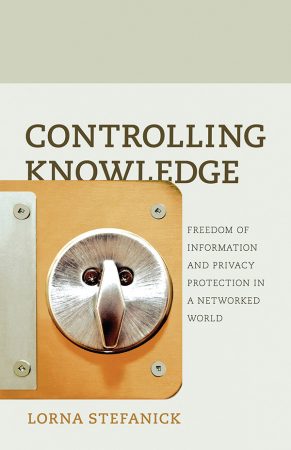- 9781927356449 (paperback)
- 9781927356456 (pdf)
- 9781927356463 (epub)
To understand how the legal system works, students must consider the law in terms of its structures, processes, language, and modes of thought and argument—in short, they must become literate in the field. Legal Literacy fulfills this aim by providing a foundational understanding of key concepts such as legal personhood, jurisdiction, and precedent, and by introducing students to legal research and writing skills. Examples of cases, statutes, and other legal materials support these concepts.
While Legal Literacy is an introductory text, it also challenges students to consider critically the system they are studying. Touching on significant socio-legal issues such as access to justice, legal jargon, and plain language, Zariski critiques common legal traditions and practices, and analyzes what it means “to think like a lawyer.” As such, the text provides a sound basis for those who wish to pursue further studies in law or legal studies as well as those seeking a better understanding of how the legal field relates to the society that it serves.
Table of Contents
- Preface
- Chapter I. Introduction
- Procedural Justice
- The Adversarial System and Adversarialism in Law
- Uncertainty and Indeterminacy in Law
- The Tools of Legal Literacy
- Critical Legal Literacy
- Chapter Review
- Chapter 2. Legal Literacy and Other Literacies: Examining the Concept and Objectives of Legal Literacy
- Literacy and Law
- Evolution of the Concept of Legal Literacy
- Other Literacies
- Related Socio-legal Concepts
- Goals and Objectives of Legal Literacy Education
- Chapter Review
- Chapter 3. Legal Structures: Structures of Law and Legal Institutions
- Conceptual Structure of Law
- Framing Using Legal Concepts
- Institutional Structures of Law
- Jurisdiction in Law
- Critical Perspectives on Structure
- Chapter Review
- Chapter 4. Legal Systems: Legal Systems—Linking Legal Institutions
- Functions of Legal Systems
- Court Systems
- Administrative Systems
- Alternative Systems
- Critical Systems Analysis
- Chapter Review
- Chapter 5. Legal Processes and Procedures: Planning and Procedures for Processes used by Legal Institutions
- Civil Litigation Process
- Civil Procedure
- Criminal Litigation Process
- Criminal Procedure
- Administrative Processes and Procedures
- Critical Analysis of Process and Procedure
- Chapter Review
- Chapter 6. Legal Language: Examining Language in Legal Institutions
- Legal Discourse
- Legal Vocabulary
- Plain Legal Language
- Language Rights
- Critical Perspectives on Legal Language
- Chapter Review
- Chapter 7. Legal Research: Skills and Techniques for Researching Law
- Types of Legal Research
- Law Libraries
- Legal Citation
- Legal Research Strategy
- Legal Research Online
- Critical Perspective on Legal Research
- Chapter Review
- Chapter 8. Legal Interpretation: Skills and Techniques for Making Sense of Law
- Reading Legislation
- Reading Cases
- Reading Contracts
- Critical Perspectives on Legal Interpretation
- Chapter Review
- Chapter 9. Legal Communication: Oral and Written Communication to Achieve Legal Objectives
- Proof of Facts in Law
- Legal Argument
- Legal Writing
- Legal Speech
- Critical Perspective on Legal Communication
- Chapter Review
- Notes
- Glossary of Terms
- Bibliography
This work is licensed under a Creative Commons License (CC BY-NC-ND 4.0). It may be reproduced for non-commercial purposes, provided that the original author is credited.



![[book cover] R.C.M.P. Security Bulletins: The Depression Years, Part II, 1935](https://www.aupress.ca/app/uploads/2019/11/The-Depression-Years-Part-II-1935-cover-279x450.jpg)
![[book cover] R.C.M.P. Security Bulletins: The Depression Years, Part III, 1936](https://www.aupress.ca/app/uploads/2019/11/The-Depression-Years-Part-III-1936-cover-279x450.jpg)